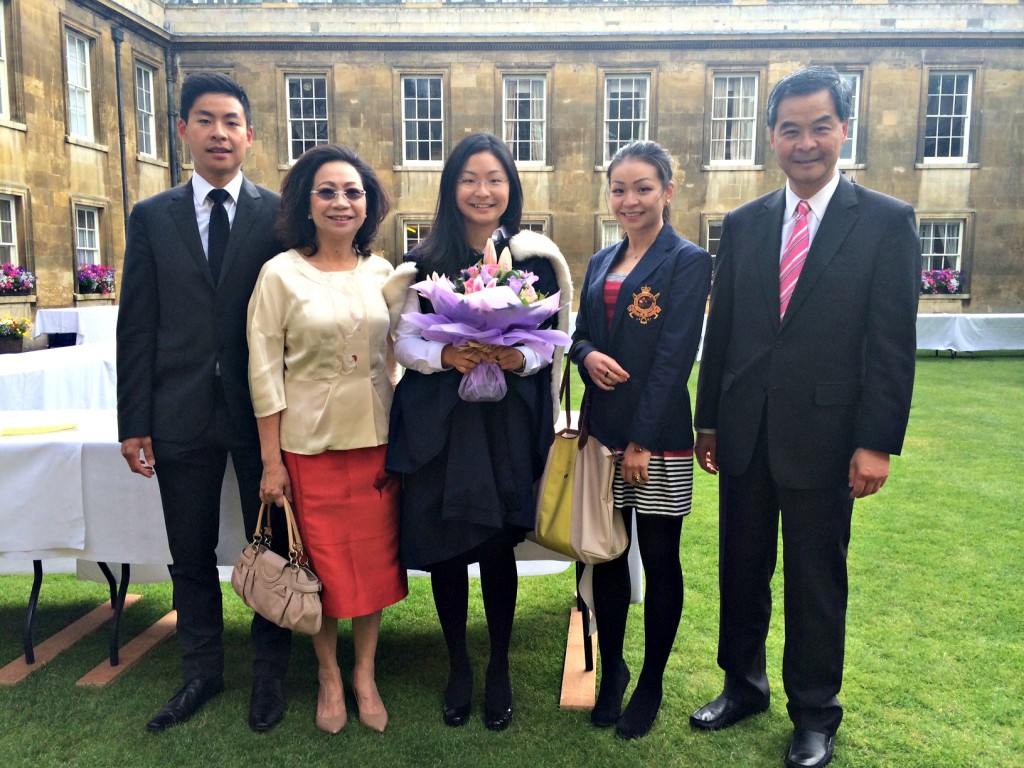by Brian Hioe
語言:
English
Photo Credit: Mk220/WikiCommons/CC
LAST WEEK, over one thousand gathered in demonstration in the arrival hall of Hong Kong International Airport. The sit-in was in demonstration of an earlier incident in which Leung Chung-Yan, daughter of Hong Kong chief executive CY Leung, left a piece of luggage outside of check in and called on her father to intercede in the matter. The demonstration was called for by the Hong Kong Cabin Crew Federation, a union for members of airplane cabin crews.
Leung, the highest ranking public official in Hong Kong, is reported as subsequently calling the airline his daughter was taking in order to demand that the item of luggage be brought inside, in defiance of security procedures. Other reports state that Regina Tong, CY Leung’s wife and Leung Chung-yan’s mother, was allowed to enter the departures area in contravention of normal security procedures. It is also reported that Leung demanded airport staff address him as “Chief Executive Leung” rather than just as “Mr. Leung.”
The HKCCF union has stated that this violation of public safety procedures was dangerous to passengers, for example, if the piece of luggage had been tampered with. However, probably the key issue which motivated demonstrators was the abuse of power by CY Leung and his family. And much of the reporting on the incident has probably neglected this issue of not only abuse of power by Hong Kong government officials, but class. After all, seeing as the action was organized by the HKCCF union, can we see the sit-in strike as a labor action?
CY Leung’s other daughter, Leung Chai-yan, is an infamous figure in Hong Kong because of numerous incidents in which Leung has expressed disdain for the common masses, evidently viewing herself as above them because of her influential father. In a time of increasing economic inequality in Hong Kong, as we see in decreasing salaries for young people and real estate prices among the most unaffordable in the world, Leung has provoked much outrage by, for example, posting pictures of jewelry and clothing and bragging about how it was purchased through taxpayer’s money from her father’s salary. Leung Chai-yan, then, would seem to be perceived as something like a Marie Antoinette figure, as the spoiled daughter of the powerful Leung family.
Leung’s comments were particularly provocative because it occurred in the middle of 2014’s Umbrella Movement. Leung has also weighed in political matters regarding the uncertain relation of China and Hong Kong by claiming the stabbing of Ming Pao editor news editor Kevin Lau Chun-to under mysterious circumstances was not politically motivated in nature. This raised eyebrows given her father is backed by Beijing and Lau had been investigating the assets of Chinese government officials.
Leung Chai-yan has had issues with her family, airing them on Facebook in a highly public manner. This includes posting pictures of an apparent suicide attempt, to which the Leung family later responded by stating that Leung has mental health issues. Whether a genuine attempt at suicide or not, the suicide attempt was perceived largely as an attempt to get attention or sympathy given her documenting it on Facebook. Leung Chai-yan’s family issues also extends to many other highly publicized incidents, such as fighting with her mother in public, or accusing her mother of violence against her. But it seems that the Leung children in general would be no stranger to public controversy.
 Leung Chai-yan, second to the right, with her father, CY Leung on the far right, and her mother Regina Tong, second to the left. Photo credit: Office of the Chief Executive
Leung Chai-yan, second to the right, with her father, CY Leung on the far right, and her mother Regina Tong, second to the left. Photo credit: Office of the Chief Executive
Though CY Leung has denied that the phone call to the airline took place or that his wife was allowed into the departures area, what would motivate demonstrators is this perception of official wrongdoing, by which Hong Kong’s public officials misuse the power their government positions accords them. But more than just official wrongdoing, it also is that government officials are perceived as using their privileges to fatten their pockets at the expense of the ordinary citizens who pay their salaries. In line with this, government officials are also often suspected of collusion with Hong Kong’s oligarchs, or by collaborating with Chinese economic interests at the expense of the local residents of Hong Kong.
Certainly, as China’s efforts to win over Hong Kong falter, their intermediaries in the Hong Kong government help matters very little through their inability to connect with the Hong Kong people. The perception of abuse of power and of standing on the side of the economic elite, rather than the common people, helps this little. And we can see recent events as a reaction against this.
However, what remains to be seen is whether dissatisfaction against the Hong Kong government can translate into questioning the economic structures which engender systemic inequality. As we see with the airport demonstration, Leung was primarily criticized on the basis of violating proper rules and regulations for safety and though this tied into broader dissatisfaction with Leung and other Hong Kong government officials on the basis of their economic class, they were not targeted directly on this basis. Ultimately, such questions of economics are beyond Hong Kong or even China, and need be addressed on this basis.


 Leung Chai-yan, second to the right, with her father, CY Leung on the far right, and her mother Regina Tong, second to the left. Photo credit: Office of the Chief Executive
Leung Chai-yan, second to the right, with her father, CY Leung on the far right, and her mother Regina Tong, second to the left. Photo credit: Office of the Chief Executive